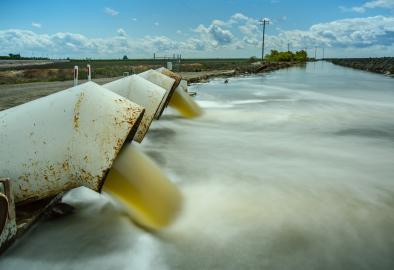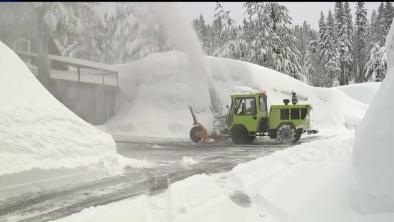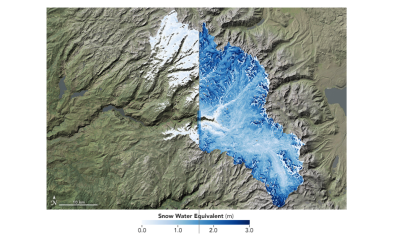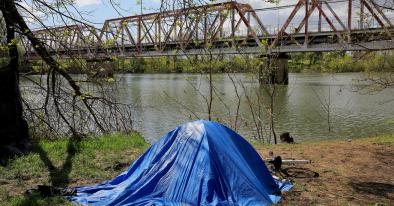California's Near-Record Snowpack Is Melting Into Raging Rivers
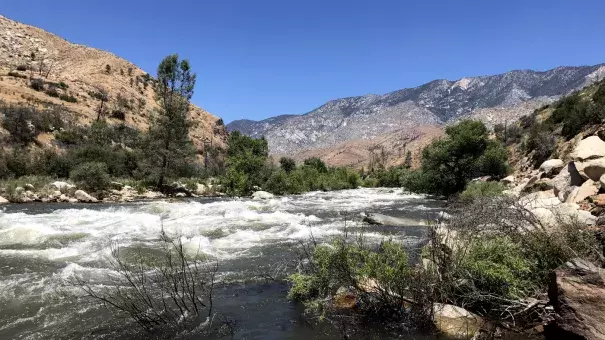
A wet winter and near-record snowpack has left the Sierra Nevada buried in a deep, lingering snow; ski resorts in Northern California are still open. But as temperatures have risen, melting some of that snow, so too have the state's waterways.
...
Up and down the Sierra Nevada, waterways are flooding with snowmelt. Further up California's Central Valley, homeowners were evacuated when the King River breached the riverbank. Reservoirs are near full.
Compounding matters is the fact that water officials aren't entirely sure how much snow there is left to melt.
"What we noticed during the heat wave is that the area of snow that is still covered up there didn't really reduce from one extent to the other," says David Rizzardo, of California's Department of Water Resources. "There was just an incredible amount of depth. There's still probably easily 5, 10 feet of snow in some of these places."
Water officials don't really have any historical perspective to look at for guidance either, Rizzardo says.
Two years ago, California's snowpack was 5 percent of normal. It was the lowest ever recorded. This year, the state had one of the biggest snowpacks ever recorded — larger than the last four years combined. The jump from one to the other has made it really difficult to forecast what rivers and the landscape is going to do. The concern water officials have is that this could become the new normal.
"One of the worries with climate change is that we see extremes more often," Rizzardo says. "And the extremes are even more extreme than we've seen in the past."
Related Content
